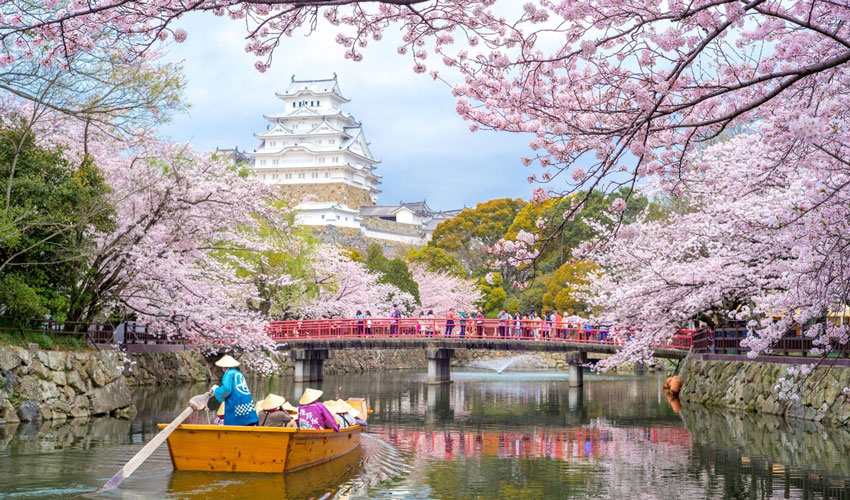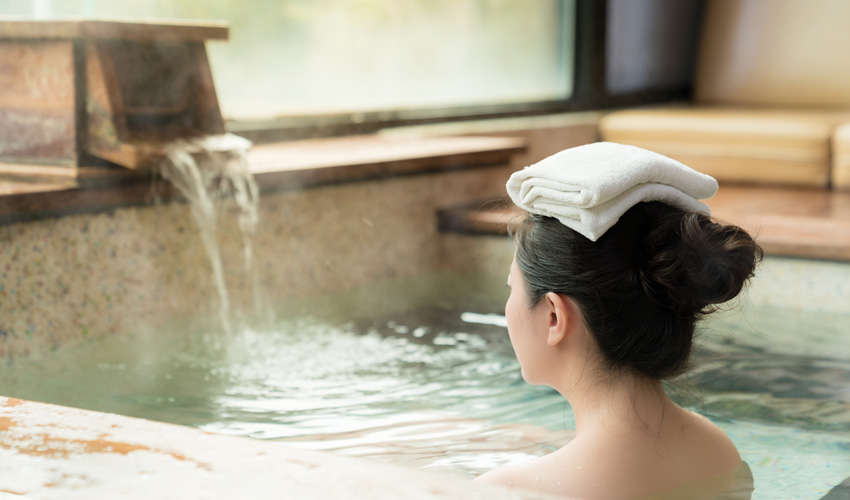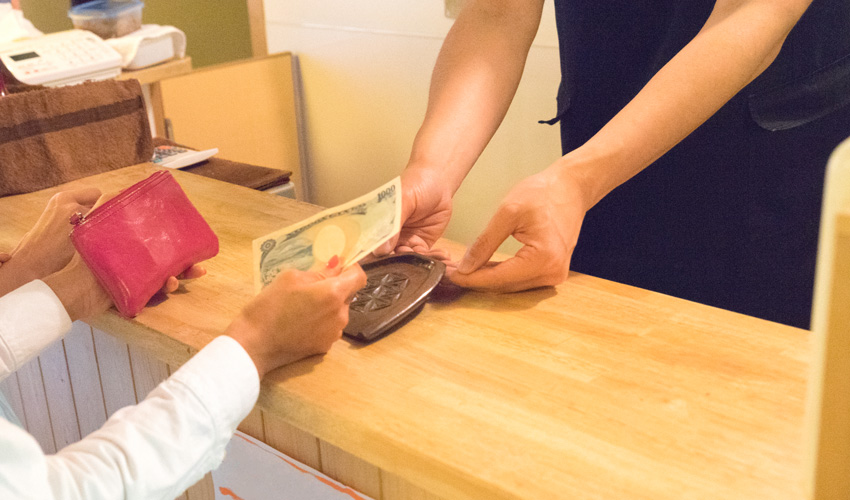20 things to know about Japanese culture for tourists

Japan is a popular destination for travellers worldwide, and it's no wonder why. The enchanting Japanese culture, breath-taking natural wonders, and bustling shopping centres make it a particularly beloved destination for many tourists In Asia. But before you decide to visit Japan, it's essential to familiarise yourself with the local Japanese customs and traditions. By understanding the nuances and rules of Japanese etiquette, you'll be able to fully embrace your journey without the worry of committing any embarrassing cultural faux pas.
Here is a list of 20 things you should know about Japanese culture, before travelling to Japan.
-
Be punctual
Timeliness is key in Japan, with punctuality highly regarded by the Japanese people. Whether catching a train or hopping on a bus, rest assured that public transport will arrive right on schedule. This makes travel planning a breeze. When meeting up with a Japanese friend or associate, remember that being late is seen as impolite and disrespectful. So, always make it a point to be on time!
-
Don't skip the queue in Japan
Orderly queuing is deeply ingrained in Japanese culture. Maintaining proper queue etiquette is crucial, whether waiting for a bus, lining up for the restroom, or anticipating your turn at a restaurant or store. The Japanese believe in a first-come, first-served approach, and skipping the line is considered highly inappropriate. So, always be patient and wait your turn!
-
Have good manners on public transport
On trains and public transportation, according to Japanese etiquette, it's not necessary to give up your seat for the elderly, disabled, or pregnant individuals. This is because Japanese public transport already provides designated reserved seating for these groups. Passengers, including tourists, are expected not to occupy these seats. Accidentally sitting in a reserved spot might draw some disapproving glances, so be mindful of where you sit!
-
Talk softly on the phone
In Japan, talking on your phone in a public space like restaurants, trains or buses is generally frowned upon. If you must make a call, keep it brief and speak softly to avoid disturbing those around you. Remember to mute your ringtone and message notifications as well. If you're playing games or watching videos on your phone, show respect and use headphones.
-
Know your escalator etiquette
Escalator etiquette in Japan dictates that you stand on either the left or right side, depending on the region you are visiting, leaving space for others who may be in a hurry. Never stand in the middle of the escalator, as this is considered an inconvenience to fellow passengers. When visiting Japan, take note of where the person in front of you stands – either on the left or right – and follow suit, ensuring you avoid standing in the centre of the escalator.

-
Look but don't touch the Sakura!
If you take a trip to Japan during Sakura (Cherry Blossom) season, it's important to remember not to touch the delicate trees. Refrain from picking or damaging the blooms, as they symbolise life's fleeting nature. And do not climb the cherry blossom trees to avoid harming them. So, when admiring the beautiful Sakura, cherish the sight and avoid any physical contact with the trees.
-
Slurp your noodles
Slurping your noodles while eating is not frowned upon in Japanese culture; it is actually considered a sign of appreciation. Apparently, it enhances the flavour and aroma, cools hot noodles, and signifies the enjoyment and satisfaction of the meal. While making noise while eating may make you uncomfortable, try it with soup-based noodle dishes like udon, soba, and ramen – the Japanese people find it odd not to slurp!
No matter how carefully you plan your trip, there's always a possibility of things going wrong. Don't let the fear of the unknown hold you back from embarking on your dream adventure. With Chubb Travel Insurance, you can travel with greater peace of mind knowing that you are covered for unexpected events such as loss or delay of your baggage, or the unfortunate need to cancel your journey. Get Chubb Travel Insurance here!
-
Be careful when using chopsticks
What is the eating etiquette in Japan, you may ask? One aspect is to be mindful of how you use chopsticks. According to Japanese dining etiquette, you must not stick them vertically into a bowl of rice, as this resembles incense sticks used in funerary rituals. Also, refrain from passing food directly from one set of chopsticks to another since this action is reserved for the bone-collecting ceremony during cremation services. If you'd like to share food with someone, pick it up and place it on your friend's plate instead.
-
How to pick up food from a shared plate.
If you are sharing food from a communal plate, remember to use the serving chopsticks provided in the middle. If these are not available, use the opposite end of your personal chopsticks to pick up the food. Transfer the selected item from the communal plate to your own dish for proper Japanese etiquette.
-
Lower your voice
It's important to avoid speaking loudly in public spaces, as in Japanese culture respect for privacy is highly valued with shared spaces considered communal. Whether on a train, in a shopping mall, or at a park, be mindful of your volume and show consideration for others.

-
Follow proper Japanese bathing etiquette
When enjoying sento (public bath) or onsen (hot mineral springs), it's customary to bathe completely naked In Japanese bathing culture without wearing any clothes or wrapping a towel around yourself. Also, bring a hair elastic to tie up your hair before entering the baths. If you take in a small towel, avoid letting it touch the water – instead, place it on your head or the edge of the pool. Additionally, ensure to shower thoroughly before entering the onsen, as cleanliness is highly valued in Japan.
-
Be careful at the Onsen if you have tattoos
Before visiting an onsen in Japan, check the establishment's specific rules if you have a tattoo. According to Japanese tradition, individuals with tattoos were not permitted in Japan's onsen (natural hot springs) due to an ancient association with organised crime. However, over time, an increasing number of onsen have eased their policies, sometimes to accommodate tattooed foreign tourists. It is crucial to confirm the policies of a particular onsen regarding tattoos before your visit, as many still prohibit tattooed guests from using their hot springs.
-
Sit appropriately
Sitting on the floor around a low table is customary in many Japanese homes and traditional restaurants. In Japanese tradition, during formal events, both men and women must kneel and maintain an upright posture. In casual settings, women may sit with legs to one side, while men can adopt a cross-legged position, commonly seen in other cultures.
-
Be careful if you’re a smoker
If you're a smoker, avoid penalties and fines in Japan by adhering to specific rules, such as refraining from smoking while walking, which is prohibited across the country. It is also a common practice to carry a portable ashtray around since littering cigarette butts are prohibited. Although some outdoor areas may permit smoking, you must dispose of your used cigarettes appropriately. If carrying a portable ashtray is inconvenient, smoke in designated areas equipped with ashtrays.
-
Respect privacy by not taking unauthorised photos
A word of caution – you must respect the privacy of Japanese people and avoid taking photos of individuals, particularly in intimate situations, without their consent. This practice is culturally inappropriate and illegal under Japan's Personal Rights Act. However, it's generally considered acceptable if you're capturing a broader scene and people happen to be included in the shot without being the main focus. Always prioritise respecting others' privacy when taking photos.

-
How to handle cash
In Japanese culture, it is uncommon for money to be exchanged directly between individuals. As a result, when buying an item or service, you will not give the money straight to the cashier. Instead, you should put your payment, be it cash or credit, on the provided small tray. If you are owed any change, it will also be placed on this tray for you to collect.
-
Remember your Japanese elevator etiquette
Another custom is around using the elevator. The first person to enter should hold the door open for other passengers and allow them to exit before stepping out themselves, regardless of gender. If you happen to be the first person entering the elevator, remember that it's your responsibility, according to Japanese culture, to press the button to open the door for others. If the first person departs the elevator, the individual nearest to the control panel should assume the role of the new 'elevator captain,' holding the open button until the former captain has stepped out. Practising proper elevator etiquette is essential in maintaining a harmonious environment.
-
Don't spit in public
When visiting public areas in Japan, remember to follow the rule of not spitting. Under Japanese law, disregarding this regulation can lead to a 10,000 Yen fine or imprisonment for up to 30 days. Either way, it's not very pleasant. Always respect the rules and maintain cleanliness in public spaces.
-
No need to tip
In Japanese culture, tipping is not customary and may be refused. While many tourists from other countries might be accustomed to leaving tips, the Japanese people value heartfelt service. However, it's becoming more common for travellers to tip private guides, interpreters, and at ryokans (traditional Japanese inns). When tipping, place clean bills in an envelope and present them with both hands. If no envelope is available, use a clean sheet of paper. Keep this cultural difference in mind when visiting Japan.
-
Find your lost items
If you lose or misplace an item, try to recall where it might have been left and contact the relevant staff. Due to the ingrained sense of responsibility in Japan, you can feel reassured that your lost belongings will likely be returned to you.
Even though learning about Japanese culture can help us better understand the local customs and traditions, it doesn't guarantee protection from unforeseen events. If you are considering a trip to Japan, it is important to purchase international travel insurance to feel more prepared and at ease during your travels. This coverage can assist you in dealing with various situations, such as illness, accidents, or damaged belongings.
Chubb Travel Insurance offers overseas travel insurance with a range of benefits and add-ons available which you can customise your coverage to fit your specific needs and budget. Say goodbye to generic insurance plans and hello to personalised protection for all your travel needs.
No part of this article may be reproduced in any written, electronic, recording, or printed form without written permission of Chubb.
Disclaimer - The content of the above article is not intended to constitute professional advice. Although all content is believed to be accurate, Chubb Insurance Singapore Limited (Chubb) makes no warranty or guarantee about the accuracy, completeness, or adequacy of the content of this article. Users relying on any content do so at their own risk.

Protect your travels
Chubb Travel Insurance offers 4 plan types with 6 different optional add-on benefits for every traveller, destination and budget.